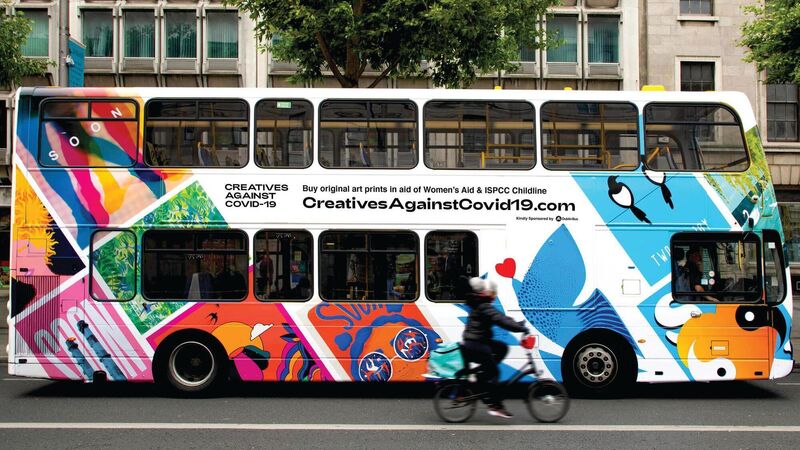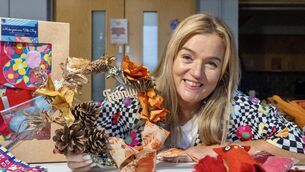Design for Good: from leaky tea pots to dining pods, design defines our lives

A bus featuring the award-winning Creatives Against Covid-19 project by RichardsDee which won both the Grand Prix and the Design for Good prizes at this year's IDI Awards.
We often understand good design when something looks nice or functions well, and conversely, bad design when something doesn’t — such as a leaky teapot. But how can design be used to do good? And why is the idea of ‘design for good’ so important?
This year, the Institute of Designers in Ireland (IDI) introduced a new category into its annual design awards: Design for Good. Award-winning designer and IDI president Róisín Lafferty says ‘design for good’ can sometimes be set aside as a specific type of design or a “box-ticking exercise”, but that now, more than ever, all design has a duty to be genuinely considered, holistically looked at in terms of requirements and functionality, and authentically be designed for good. “Design should have a deeper impact than just surface level. It can genuinely enhance how we live across all disciplines and improve the things we do and the way we act. That shouldn’t be underestimated,” she says.








